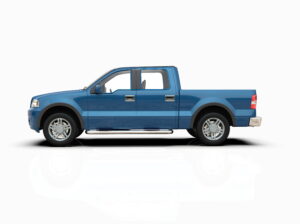
Q: I’m thinking it’s time for new wheels. Should I spring for a new vehicle or buy a pre-owned one?
A: Choosing between new and pre-owned cars can be a complicated decision. To make your job a little easier, we’ve outlined the pros and cons of each purchase type below.
Pros of new cars
- Status symbol. The allure of owning a new vehicle is obviously its attractiveness.
- Fewer repairs. You can assume you won’t be dealing with major repairs or maintenance issues for a while.
- Easier shopping. There’s no need to drag your prospective new car to the mechanic to check it out.
- More financing options. You’ll be offered attractive incentives, like cash rebates from the carmaker and better interest rates from the lender.
- Improved technology. Recent models have incredible technology, such as programmable settings, autonomous emergency braking and adaptive cruise control.
- Automaker’s guarantee. New cars come with warranty coverage for their first three years or 36,000 miles, whichever comes first.
Cons of new cars
- Price. Of course a new car will cost more. But, what makes it more painful is the fact that you can get a comparable vehicle for much less.
- Depreciation. New cars go down in value as soon as they leave the lot, often by 20%. At the end of the first year of ownership, your new car can drop another 10%.
- Higher premiums. Insurance companies charge more for newer vehicles.
Pros of used cars
- Price tag. It’s not unusual to find a used car in decent condition with a price tag that’s 30% lower than a similar brand-new model.
- Less depreciation. With the previous owner absorbing the initial depreciation on the car, your vehicle will only experience a minimal drop in price.
- Lower insurance. With your car weighing in at a lower value, your monthly insurance premiums will be lower.
- Lower interest. If you finance a used car, you’ll likely have a higher interest rate. However, since the loan amount is lower, you’ll save in total interest payments over the life of the loan.
- Predictability. When buying a model that’s been around for a few years, you’ll have a wealth of research available on your car and can know what to expect.
Cons of used cars
- Complicated purchase. With a used vehicle, you’ll want to get a vehicle history report and bring it to a mechanic for an inspection.
- Fewer choices. When buying pre-owned, you don’t get to be picky about things like colors and features.
- Risk. Even if you do your homework well, you run the risk of walking out with a lemon when you buy a pre-owned car.
Whether you choose to go new or previously-owned, don’t forget to call, visit our loans page, or stop by today to hear all about our auto loans.
